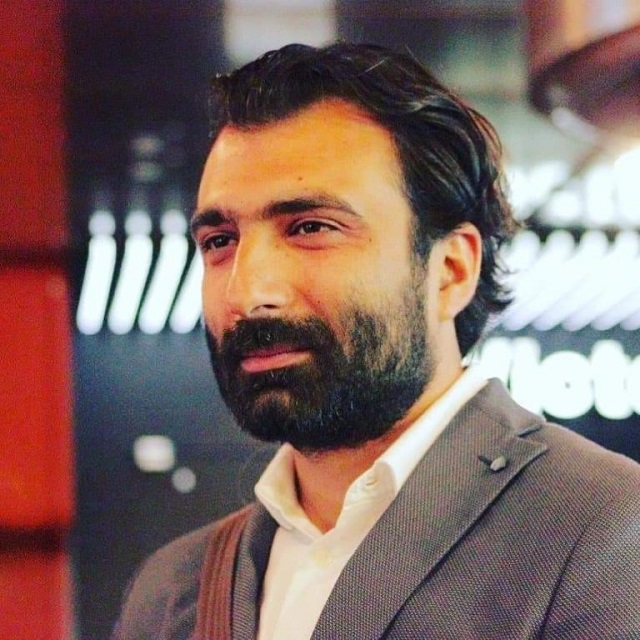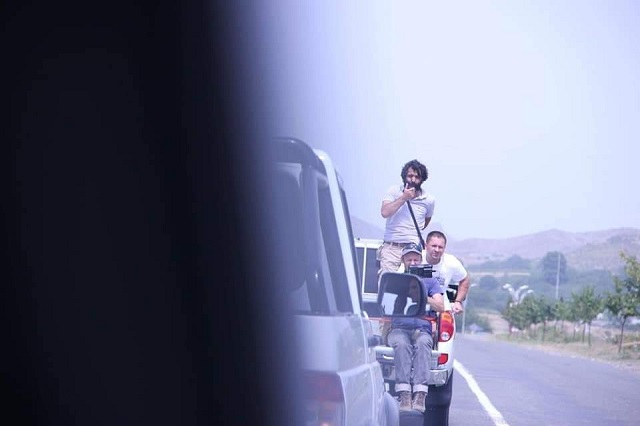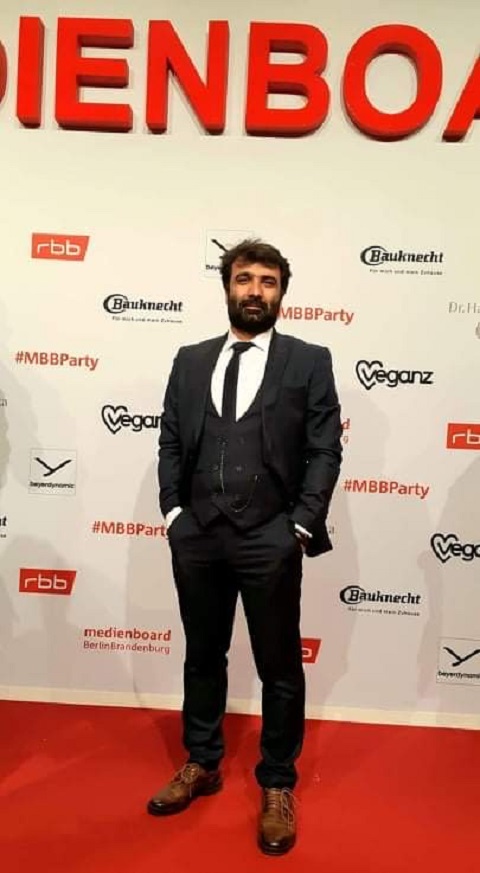The driving force behind Jivan Avetisyan’s genius is his passion and love for his homeland—Artsakh— portrayed in all of his movies including Tevanik, The Last Inhabitant and Gate to Heaven. These films have been shown worldwide in various international movie festivals and received many awards.
Avetisyan’s next project Revival is the story of a woman’s secret which forces three different destinies to come together in search of their true identity and origin.
In the following interview with The Armenian Weekly, Avetisyan sheds light on his upcoming project and the importance of making films about Artsakh now more than ever.
Read also
Armenian Weekly (A.W.): When did you begin thinking about the plot of “Revival”?
Jivan Avetisyan (JA): Revival embodies the notion of identity, rediscovery and revival that are very modern and universal topics. In 2018, we started developing the idea of the movie; we are still improving the story. Our plans were different in regards to the production of this film, as well as the worldwide distribution of my latest movie Gate to Heaven, but 2020 postponed a lot of our plans. Every day, we are trying to find the strength to go one step forward. If we do not face any more hurdles, we are planning to finish this project by 2024.
The crowdfunding campaign started on Kickstarter on March 30th. In almost a week, we were able to raise $25,000, and that’s thanks to people who believed in us and are waiting impatiently for the release of the movie. I want to thank each and every one of them. Our goal is to reach $100,000 which is why we cannot stop now. I’m hoping that other individuals, backers, benefactors and organizations from different parts of the world, Armenian and non-Armenian, help us finish the Revival project through our collective efforts.
A.W.: From your perspective, were there any indications that attacks of this nature would be coming, not only from Azerbaijan, but also including Turkey and jihadist mercenaries?
J.A.: There were no obvious indications about the latest attacks, but taking into account their ongoing aggressions against the Armenians for years, we should’ve expected the worst from them, which resulted in what happened in 2020.
My team and I had a feeling that the war was not over, that it could explode any day; that’s why we were producing movies about Artsakh for years.
A.W.: What did you witness during this war and how were you affected, both personally and professionally?
J.A.: I cannot erase whatever I saw and witnessed during the war from my memory. I lost relatives and friends to this war. I also lost the actor of my first full-length movie Tevanik, Hovhaness Khoderian. Who could have imagined that when we were filming the movie years ago, his first experience of holding a gun would take him to the real battlefield one day? He was full of hopes, goals, dreams that were left unfinished. He and hundreds of young men like him, our heroes, joined the angels so that we can live another day. After all this, we don’t have the right to retreat. We have to work relentlessly in the name of real victory. I am convinced that one day we will get that victory so that we honor the lives of our heroes that were cut short.
A.W.: We know that you were documenting the events of the war on film, and we’re certain it was extremely difficult and dangerous to film during those days. How did your role as an artist and filmmaker impact this production process?
J.A.: I was in Artsakh for 38 days during the war working at Artsakh TV (where I used to work years ago). I joined their team and was in different cities, villages, different lines of contact where I filmed and took photos of the atrocities of this war, which will be included in the movie Revival through the eyes of the main actor.
A.W.: Did the outbreak of war alter your plans for Revival in any way? For instance, did you decide to make any changes to the story or change your plans for filming?
J.A.: Revival is a multilayered movie, and yes, the war of 2020 changed the direction of one of the layers. From the beginning, the war of 2016 was included in the story of the movie, but when I was in Artsakh during this last war, I realized that I need to change the storyline and replace it with the war of 2020. When I returned from Artsakh, I made the necessary changes in that direction. We are developing and perfecting the storyline every day.
A.W.: Previously, you have said that it is important now more than ever before for films to be made about Artsakh. How do you expect that these productions will be received by international audiences? Will specific steps need to be taken to engage a wider audience, and if so, what should those be?
J.A.: Yes, I said that, and I believe now there should be even more movies about Artsakh. To date, we never had a strong movie telling the story of Shushi. Maybe I am to blame for that as well, which is painful for me and I regret it very much. We have to right our wrongs, and by doing so we will strengthen our backbone. My previous movies have all included Artsakh in them and had a big and positive impact.
When we showed The Last Inhabitant to members of the Hollywood Foreign Press Association, a lot of them had questions about Artsakh after they watched the movie. They did not know much about Artsakh up until then. One of the members approached me and asked if the conflict was still ongoing. It was really surprising for them that no one talks about that. In 2020, the whole world heard about the war in Artsakh and stayed silent for different reasons; but the representatives of different countries raised their voices, including those in Lithuania, the United States, Czech Republic and other countries. The movies have to tell everything that the world did not talk about.
Many avoid discussing the topic of Artsakh. For example, Gate to Heaven was pulled out of the International Movie Festival in Moscow hours after the war started in Artsakh because of pressure from the Azerbaijani side. As a result, art gave in to politics, which is painful to see.
But many accept the truthful message of a movie, its innovative and artistic aspect, the simple and dramatic stories behind human destiny that are powerful and interesting in themselves and take us to the discovery of one’s identity. We have to try to speak in the international movie language and not only in a language that is understood by Armenians; that is the right direction. That’s why me and my team have created movies with universal themes and an international cast and production crew for years. With the movie Revival, we are broadening our collaborations even more. We are planning to film the movie in many international locations which later on will help in the distribution as well.
A.W.: Where do you intend to film for this movie and what effect has the war had on those plans?
J.A.: Other than the Armenian Highlands, we are planning to film this movie in different European countries, as well as Iceland and Israel, where different storylines in the movie take place. Hopefully, we can accomplish our plans without any hurdles.
A.W.: Your films have all been focused on war in Artsakh with very distinct titles. Tell us about your intent with the title Revival and its connection to the story you are planning to tell.
J.A.: I did not choose the title Revival by chance. There are three main characters in this movie, and their stories develop simultaneously. Each line of the story is different but has an impact on the others. All three heroes have one thing in common: the search for their identity and their origins. When a person finds his true identity, he understands what he is truly made of and returns to his beginning, revived. Now we are broken more than ever; we’re hoping that this movie will be a source of inspiration, so that the Armenian people will live that revival, which is very important and crucial.
A.W: The brief synopsis of the film’s plot states: “This is the story of three characters of different nationalities, who face their own darkness in search of identity and origins.” Would you elaborate on this a bit?
J.A.: There are three main characters in the movie who live in different European cities, but each one of them has a different story about his origins. One of them is Armenian, one is Canadian, and the other is Jewish. Each one of the characters tries to go back to his roots to find himself and his own identity. But the road to self-discovery is not easy. They are faced with the reality and their own dark side to eventually find the light. I included many stories that I’ve heard, read about, and seen, real events from my own memories and anecdotes which are presented as a whole in an interesting way in this movie.
A.W.: What message do you hope to send to viewers of Revival, particularly about Artsakh, its future and the future of its Armenian people?
J.A.: I believe in our real victory, our unity, our diligence, our agility to learn from our mistakes and the will to avoid repeating them. Our strength and perseverance bring us closer to that victory. We have to stand shoulder to shoulder by each other, be each other’s pillar, so that we can have a strong and secure place in this world. I hope the movie Revival will help in the process of our rebirth.
Dzovinar Hatsakordzian
Main Photo Caption: Jivan Avetisyan

























































